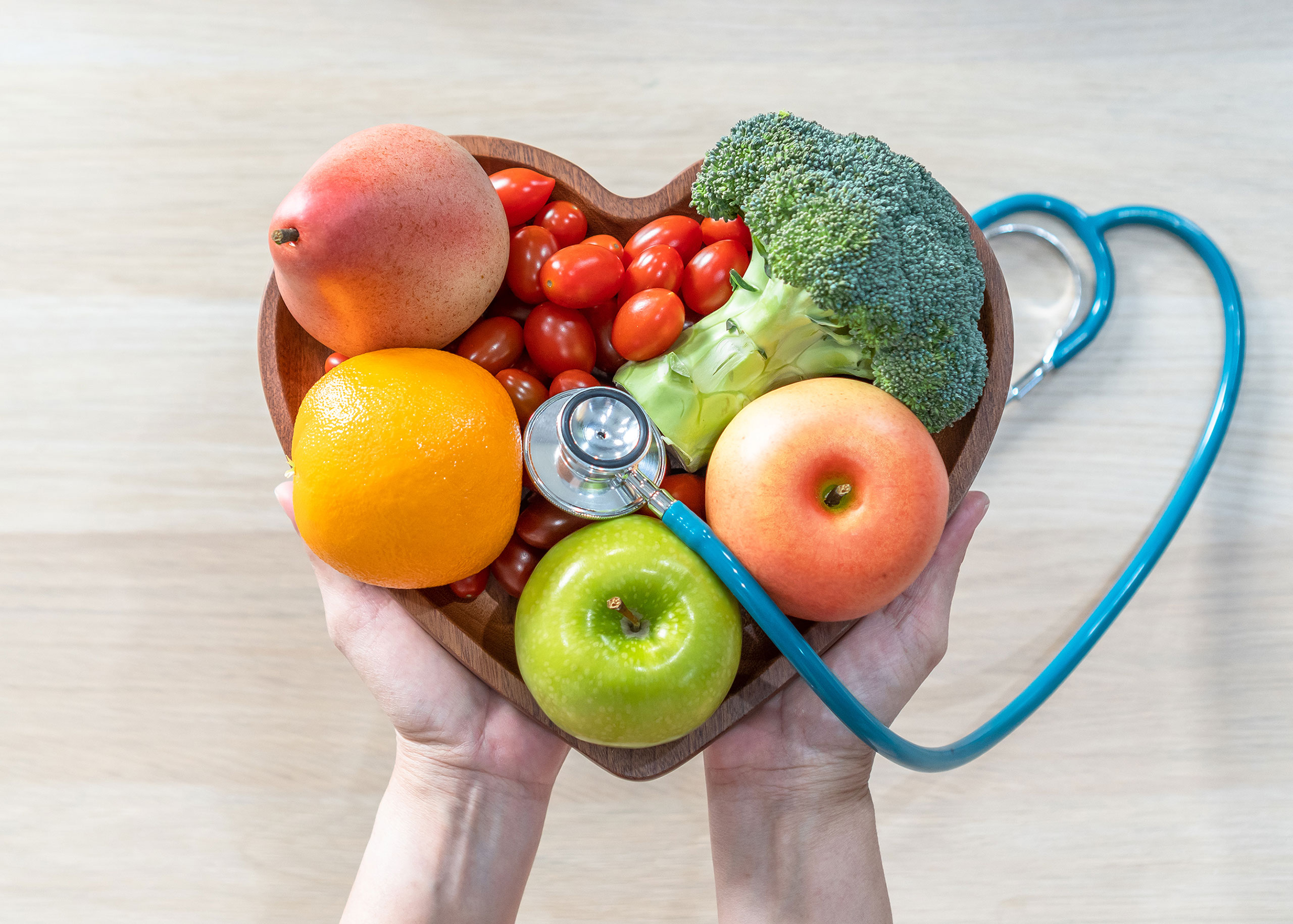It’s important to maintain a healthy diet to reduce the risk of cardiovascular health issues and also to promote overall wellbeing. We need to understand that a healthy heart diet is not just eating low-calorie foods, but it is also about choosing those nutrient dense foods that are rich with essential vitamins, minerals, healthy fats and antioxidants. This is ideally the right food that can help in reducing cholesterol, maintain healthy blood pressure and reduce inflammation to contribute to a healthier heart.
Try to incorporate these 10 heart-healthy foods into your daily meal planning to make it nutritious as well as delicious.
1. Salmon: A Powerhouse of Omega-3 Fatty Acids
Salmon is a top choice for heart-healthy eating. This fatty fish is rich in omega-3 fatty acids, which are known for their ability to lower blood pressure, reduce inflammation, and prevent the buildup of plaque in the arteries. Omega-3s can also help reduce the risk of heart disease by lowering triglycerides and improving cholesterol levels. To enjoy the cardiovascular health benefits, aim to eat two servings of fatty fishlike salmon per week as part of your meal planning.
2. Avocados: Healthy Fats for a Healthy Heart
When it comes to heart-healthy eating, avocados are a must-have. They are packed with monounsaturated healthy fats, which are the good kinds of fats that can help lower bad cholesterol (LDL) levels while maintaining or increasing healthy cholesterol (HDL). Avocados are also loaded with fiber, which plays an essential role in lowering cholesterol levels and improving cardiovascular health. Incorporate avocado slices into salads or spread them on whole-grain toast for a nutrient-packed breakfast.
3. Berries: Antioxidants for Heart Protection
Berries, such as blueberries, strawberries, and raspberries, are rich in antioxidants and anthocyanins, which are compounds that help reduce inflammation and protect the heart from oxidative stress. These antioxidants also play a key role in heart disease prevention by preventing damage to blood vessels and lowering the risk of high blood pressure. For a heart-healthy snack, enjoy a handful of fresh berries or add them to smoothies, oatmeal, or salads.
4. Leafy Greens: Nutrient-Dense Powerhouses
Leafy greens like spinach, kale, and Swiss chard are excellent sources of vitamins, minerals, and fiber. They are particularly rich in potassium, which helps manage blood pressure by counteracting the effects of sodium in the body. These vegetables are also packed with antioxidants, promoting heart health and reducing inflammation. Incorporating leafy greens into your daily diet is one of the best ways to support your cardiovascular health and maintain a balanced diet.
5. Nuts: Fiber and Healthy Fats for Cardiovascular Support
Nuts, especially almonds, walnuts, and pistachios, are fantastic additions to any heart-healthy diet. They are rich in fiber, healthy fats, and antioxidants that contribute to lowering LDL cholesterol levels and improving blood vessel function. Walnuts are high in omega-3 fatty acids, providing an added boost to your cardiovascular health. Keep a small handful of nuts in hand as a quick and satisfying snack or sprinkle them on top of salads or yogurt.
6. Olive Oil: A Heart-Healthy Cooking Staple
Olive oil, particularly extra-virgin olive oil, is a staple in heart-healthy Mediterranean diets. It’s packed with monounsaturated fats, which help reduce the risk of heart disease by lowering bad cholesterol levels and improving overall cardiovascular function. The polyphenols in olive oil also possess antioxidant properties, which support heart health by reducing inflammation. When planning a meal, use olive oil as a cooking base or drizzle it over salads for added flavor and nutrition.
7. Beans and Legumes: High in Fiber and Cholesterol-Lowering Benefits
Beans and legumes, including lentils, chickpeas, and black beans, are nutrient-dense foods that are rich in both fiber and plant-based protein. Fiber is an essential component of a heart-healthy diet, as it helps lower cholesterol and regulate blood sugar levels. These foods also have a low glycemic index, which helps keep blood sugar stable, further promoting cardiovascular health. Incorporating beans into soups, salads, and stews is a great way to boost your heart-healthy nutrition.
8. Whole Grains: The Fiber-Rich Choice for Lower Cholesterol
Whole grains, such as oats, quinoa, and brown rice, are excellent sources of fiber, which is vital for maintaining heart health. Fiber helps to reduce cholesterol levels by binding to cholesterol molecules in the digestive tract and removing them from the body. Additionally, whole grains help stabilize blood sugar levels, preventing spikes and crashes that can lead to inflammation. Opt for whole grains instead of refined grains to boost heart-healthy eating and support long-term cardiovascular health.
9. Dark Chocolate: A Sweet Way to Protect Your Heart
Dark chocolate, especially varieties with 70% or higher cocoa content, is a surprising addition to a heart-healthy diet. It is rich in flavonoids, which are antioxidants that have been shown to improve blood flow, lower blood pressure, and reduce the risk of heart disease. However, moderation is key, as chocolate can also be calorie dense. A small square of dark chocolate can be a delicious and heart-healthy treat when consumed in appropriate portions.
10. Tomatoes: Packed with Lycopene for Cardiovascular Health
Tomatoes are a rich source of lycopene; an antioxidant that has been shown to help reduce the risk of heart disease by improving cholesterol levels and protecting blood vessels. Lycopene also supports blood pressure regulation and has anti-inflammatory properties. Whether you enjoy fresh tomatoes in salads, cooked in sauces, or roasted as a side dish, they are an excellent addition to any heart-healthy diet.











